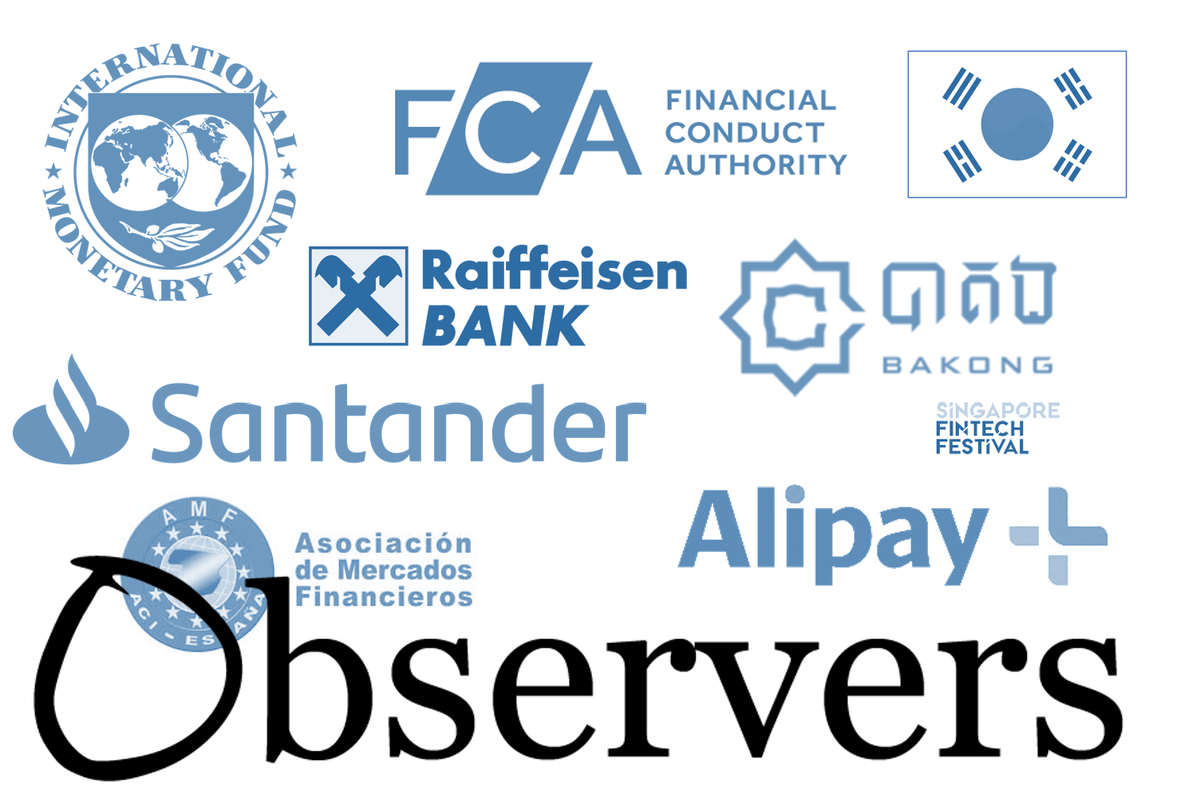
For all the key details of blockchain projects in the banking world, real-world asset (RWA) tokenization, and central bank digital currency (CBDC) updates, the Observers 'Banking and CBDC Roundup' has you covered.
Two big international banks have opened up crypto trading to (at least some of) their customers this week.
Santander Private Banking International, part of the Spanish multinational Banco Santander, is reportedly offering BTC and ETH trading for high-net-worth clients in Switzerland. This is according to an internal announcement leaked to CoinDesk. Meanwhile, Austria's Raiffeisen Bank is rolling out crypto trading services to retail customers by January 2024. The service will initially be available in Vienna, and is being provided in collaboration with crypto exchange Bitpanda, which will be directly accessible via the Raiffeisen banking app.

U.K. authorities have put their support behind the publication of a blueprint for tokenizing investment funds by the Investment Association. The report investigates the potential of tokenization and concludes that it can provide greater efficiencies and benefits over current record-keeping systems. The report discusses two options for the settlement money: digital pound CBDC or the Bank of England's planned atomic RTGS. Further, the working group does not exclude extending the experiment on permissionless blockchain during Phase 2, which will commence in February 2024.

Cambodia's CBDC-like Bakong payment system has announced a partnership with China's Alipay+ network, allowing users of each individual ecosystem to interact with the merchants and users of the other. Also this week, Cambodia's and China's central banks agreed to cooperate on financial innovation, clearing and settlement arrangements, and facilitation of efficient and secure cross-border payment transactions.

South Korea's central bank has announced a forthcoming CBDC pilot program encompassing 100,000 citizens, as reported by the Korea Times. The pilot will see the selected individuals able to purchase goods using CBDC deposit tokens, but is not scheduled to start until Q4 of next year.

The International Monetary Fund (IMF) released a central bank digital currencies (CBDCs) virtual handbook for the central banks. Besides the general methodology, the handbook discusses the implications for capital flow management and monetary policy transitions in two separate chapters. Both aspects are considered manageable. Overall, the handbook is quite optimistic for a legacy organization such as IMF.

And, probably not having read the handbook yet, Spain's top banker has claimed in a speech at the Annual Convention of the Asociación de Mercados Financieros (Association of Finacial Markets) that there is no pressing need for a digital euro but that investigatory work on the CBDC should continue. Pablo Hernández de Cos explained that Europe's existing 'highly efficient' payment systems meant that the bloc could take its time to ensure a digital euro was fit for purpose, and that such a CBDC could "provide significant benefits to European citizens."

